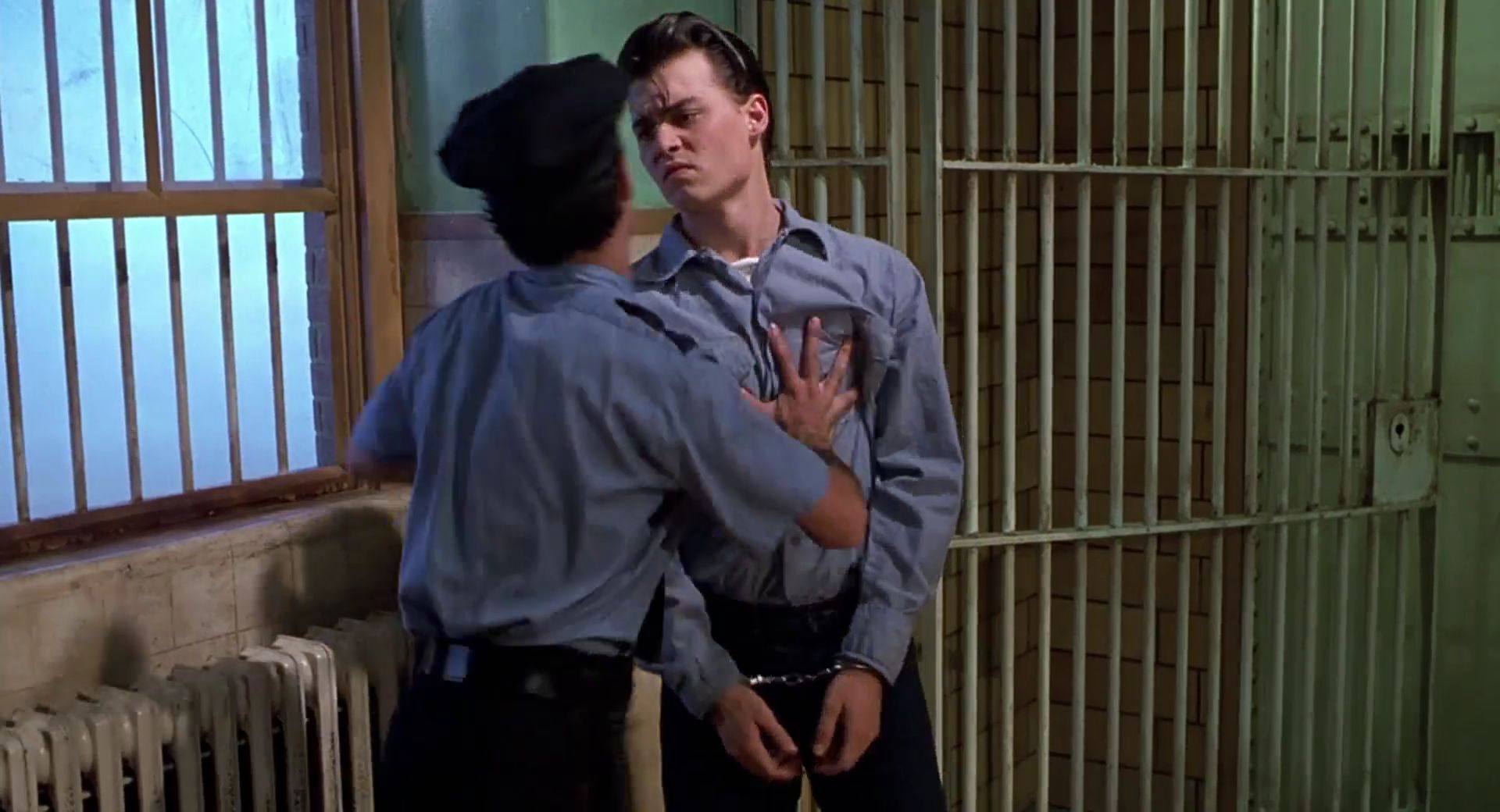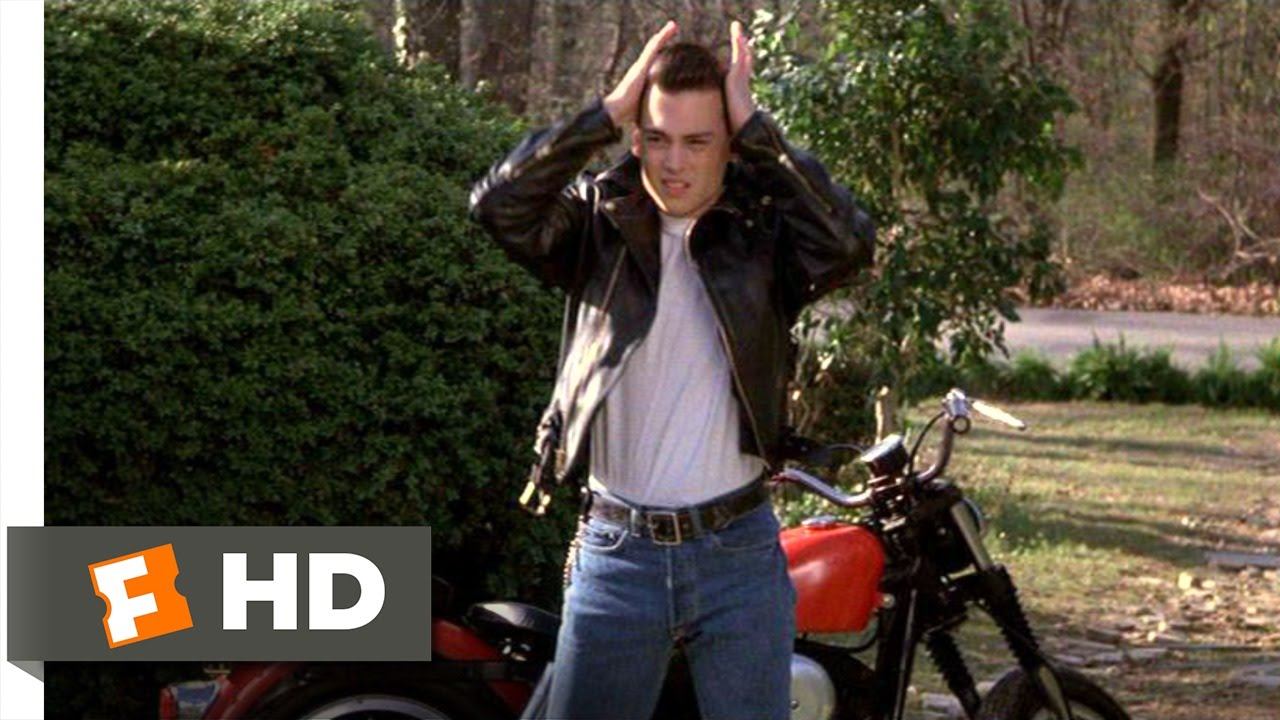Cry-Baby (1990)

Cry-Baby is a 1990 American teen romantic musical comedy film written and directed by John Waters. The film is set in the 1950s and revolves around the life of a rebellious teenager named Wade “Cry-Baby” Walker, played by Johnny Depp. The movie offers a unique blend of humor, music, and teen angst, making it a cult classic over the years. With a cast of eccentric characters, Cry-Baby provides a satirical yet heartfelt look at teenage love, social class divides, and the complexities of growing up.
The story follows Cry-Baby, a greaser with a bad-boy image who falls in love with a sweet, rich girl named Allison Vernon-Williams, played by Amy Locane. The two come from completely different social worlds, and their relationship is challenged by their contrasting backgrounds. While Cry-Baby and his gang of misfits, known as the “Drapes,” live on the rough side of town, Allison is part of the “Squares,” the upper-class kids. Despite these differences, the two fall deeply in love, sparking tension and conflict between their families and friends.
The film showcases numerous musical numbers that capture the essence of the 1950s rock-and-roll era. These songs play a significant role in the film, enhancing the emotional tone of the scenes while also providing a sense of fun and energy. The musical performances are one of the highlights of the film, allowing the characters to express their feelings and desires in a way that words alone cannot. The catchy tunes and vibrant dance sequences bring the film to life, adding a layer of charm to the quirky plot.

What makes Cry-Baby particularly memorable is its satirical portrayal of the divide between social classes. The “Drapes” and the “Squares” represent the two opposing sides of American society, and their rivalry adds humor and drama to the film. The movie humorously exaggerates these stereotypes, turning them into exaggerated caricatures, which allows the audience to laugh at the absurdity of social division. Despite the comedic tone, the film also touches on more serious themes, such as identity, belonging, and the struggles of teenage life.

In conclusion, Cry-Baby is a light-hearted yet meaningful exploration of teenage love, rebellion, and the social issues of the 1950s. The film’s mix of humor, music, and romance makes it a fun and engaging experience for viewers. While it may not have been a major box office hit when it was first released, it has since become a beloved cult classic. The film’s enduring charm lies in its quirky characters, catchy music, and satirical take on teenage life and societal norms.











